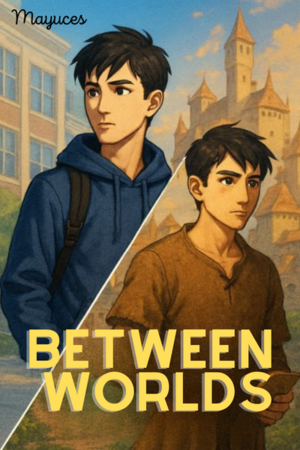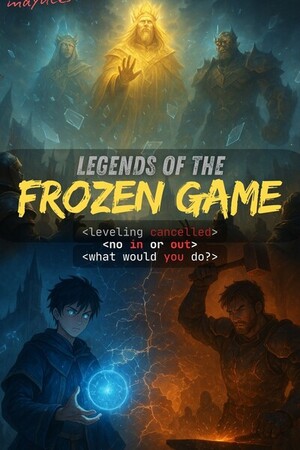Chapter 41:
CHAPTER 41: DRAGONS AND DISSOCIATION
Between Worlds
Marcus woke in his Chicago dorm room with his mind buzzing from the Academy reformation meeting. The successful proposal for expanded education felt like a major victory, but it highlighted how much he needed to understand about implementing educational systems from scratch.
"Morning, sleeping beauty," Tyler called from his desk, already organizing streaming equipment. "You've been talking in your sleep again. Something about curriculum design and practical applications."
"Working through some ideas," Marcus replied, sitting up and reaching for his laptop. "Tyler, I need to do some research before classes. Mind if I use your study corner?"
"Go for it. I'm heading out to film content anyway." Tyler gathered his portable setup. "What are you researching? More medieval stuff?"
"Educational theory. How to start teaching systems in... resource-limited environments. Places without established infrastructure or traditional academic institutions."
Tyler paused in his packing, looking curious. "That's cool. Like building schools in developing countries or something?"
"Something like that," Marcus said, opening several browser tabs. "I'm trying to understand core concepts that work regardless of available technology or resources."
"Well, good luck with that. Sounds complicated but important." Tyler headed toward the door. "Oh, and don't forget you have that gaming club thing tonight. You seemed excited about joining."
Marcus had almost forgotten about the D&D club invitation. "Right. Thanks."
After Tyler left, Marcus dove into intensive research about educational principles and implementation strategies. He searched for articles about teaching in low-resource environments, historical examples of rapid educational expansion, and approaches to adult literacy programs.
"UNESCO guidelines for education in developing regions," he muttered, taking notes. "Paulo Freire's critical pedagogy. Montessori methods adapted for adult learners..."
The irony wasn't lost on him. He was researching modern educational theory to help revolutionize a medieval academy in another dimension. But the principles seemed universal: start with practical needs, build on existing knowledge, create collaborative learning environments, measure results and adapt approaches.
"Problem-based learning," Marcus read aloud, highlighting key passages. "Students learn by working on real challenges rather than abstract theory. Exactly what we're trying to do with the Academy program."
He discovered fascinating historical examples: the Danish folk high school movement, nineteenth-century mechanics' institutes, the Highlander Folk School's approach to community education. Each case study offered insights into overcoming resource limitations and social resistance.
Marcus spent his morning classes half-listening to lectures while mentally planning how to adapt modern educational research for Valdris implementation. By afternoon, he had filled notebook pages with strategies, methodologies, and assessment approaches that could work with medieval technology and social structures.
"The key is scalability," he wrote in his notes. "Start with demonstration programs that show immediate benefits. Train local instructors who understand community needs. Create sustainable funding through economic improvements."
Evening approached faster than Marcus expected. He gathered his research materials and headed toward the Student Union, feeling oddly nervous about his first D&D session. In Valdris, he dealt with magic, political intrigue, and technological warfare. But somehow, collaborative fantasy storytelling with college students felt intimidating.
Room 240 was buzzing with activity when Marcus arrived. Five students sat around a large table covered with books, character sheets, dice, and hand-drawn maps. The setup looked sophisticated for a college club.
"Marcus!" Emma called enthusiastically, looking up from her thick binder of game materials. "You made it! Everyone, this is the new player I mentioned."
Marcus surveyed the group as introductions were made. Derek, the Dungeon Master, had the kind of intense focus that reminded Marcus of Master Thymon. Sarah was a psychology major whose analytical approach to character motivation echoed Alice's scribal precision. David reminded him of Big Tom. Straightforward, loyal, and primarily interested in direct action solutions.
"So Marcus," Derek said, settling behind his DM screen, "Emma mentioned you're interested in scenarios involving magic, technology, and political intrigue. That's not the kind of campaign we usually run here. More of a dragons and adventure."
"Perfect," Marcus replied, excited. "I've been thinking lately about dragons."
"What kind of character are you thinking of playing?" Emma asked, sliding a character creation guide across the table.
Marcus examined the options. Wizards, warriors, rogues, clerics. Each with distinct abilities and limitations. Without consciously planning it, he found himself gravitating toward an unusual combination.
"What about a character with no magical abilities," Marcus said slowly, "but who specializes in innovation and problem-solving? Someone who uses knowledge and creativity to accomplish what others do with magic?"
Derek rolled his eyes. "A non-magical innovator in a fantasy setting? So original. Most players want fireballs and healing spells." He said it sarcastically, clearly unimpressed.
"I think that's what makes it interesting," Marcus replied. "How do you contribute meaningfully to a group when everyone else has supernatural abilities, but you only have intelligence and determination?"
"That's a fascinating character concept," Sarah said approvingly. "What motivates someone to compete in a world where they're fundamentally disadvantaged?"
Marcus thought about his position in Valdris. No magic, but access to knowledge that could change everything. "Maybe they're not disadvantaged. Maybe they just have advantages that aren't immediately obvious."
The character creation process proved more engaging than Marcus had expected. They spent an hour developing his character's background, motivations, and capabilities. Marcus found himself creating someone remarkably similar to his Valdris identity: a refugee from a destroyed homeland, trying to help family and friends while fighting against overwhelming odds.
"Interesting," Derek observed as Marcus finalized his character sheet. "Your guy has skills in engineering, alchemy, and what we might call 'technology adaptation.' Almost like he's from a more advanced civilization trying to make his knowledge work in a medieval setting."
"Something like that," Marcus agreed, impressed by Derek's insight.
The gaming session was revelatory. Derek presented complex scenarios that required creative problem-solving, collaborative planning, and thinking. When the group faced challenges that seemed impossible to overcome with traditional fantasy approaches, Marcus found his character contributing unique solutions based on practical knowledge and innovative thinking.
He undersold his campaign, Marcus thought.
"Your character's idea to use simple machines and leverage to overcome the magical barriers is brilliant," Emma said during a break. "I never would have thought of that approach."
"That's the advantage of thinking outside conventional fantasy frameworks," Marcus replied. "Sometimes mundane knowledge applied creatively can be more powerful than magic."
The session continued past midnight, with the group working through a complex political scenario involving corrupt nobles, threatening enemies, and limited resources. Marcus found the collaborative storytelling similar to planning in Valdris. Identifying problems, evaluating options, implementing solutions, adapting to unexpected developments.
When the session finally ended, Marcus felt energized rather than tired. The thinking, collaborative problem-solving, and creative application of knowledge had been intellectually satisfying in ways he hadn't expected.
"That was fantastic," Marcus said sincerely as the group packed up their materials. "When's the next session?"
"Friday evening," Derek replied. "Same time, same place. Think you'll stick with the non-magical innovator concept?"
"Definitely. I'm excited to see how he develops."
Walking back to his dorm near midnight, Marcus reflected on how the gaming session had unexpectedly paralleled his experiences in Valdris. The challenges of contributing without traditional advantages, the importance of creative thinking, the value of collaborative relationships. All themes that resonated with his double life.
The dorm hallway was quiet except for the familiar sound of Tyler's late-night streaming session echoing from their room. Marcus entered to find Tyler in full performance mode, engaging enthusiastically with his live chat while playing some complex strategy game.
"Chat, I'm telling you, conventional builds are overrated," Tyler was saying to his audience. "Sometimes the weirdest combinations end up being the most effective."
Marcus settled into his desk chair, close enough to Tyler's setup to be visible on camera but out of the main frame. Tyler noticed him and gestured him closer.
"Oh hey, my roommate just got back from his first D&D session," Tyler announced to his stream. "Marcus, tell chat about your character concept."
Marcus looked at the streaming setup, seeing dozens of chat messages scrolling past on Tyler's second monitor. The real-time interaction with viewers was fascinating. Like performing collaborative storytelling for a live audience.
"I created a non-magical innovator in a fantasy campaign," Marcus said, leaning into Tyler's microphone range. "Someone who solves problems with knowledge and creativity instead of fireballs and magic spells."
The chat immediately exploded with responses. Marcus watched the messages scroll by: "boring character concept," "where's the magic???" "sounds like playing on hard mode," "that's creative though."
"Chat's divided," Tyler observed with amusement. "Some people think you lack creativity, others think it's interesting. What's your take?"
Marcus laughed, entertained by the online debate. "I think the most creative solutions often come from working within limitations. When you can't blast everything with magic, you have to think differently."
"That's smart," Tyler said approvingly. "Like speedrunning. The most innovative routes come from finding ways around obvious approaches."
They talked for another few minutes about character development, gaming, and the psychology of collaborative storytelling. The chat gradually warmed to Marcus's presence, with several viewers asking questions about D&D and unconventional character concepts.
"Alright chat, I think we're gonna wrap up for tonight," Tyler finally announced. "Thanks for hanging out, and remember. Sometimes the weirdest strategies work the best."
As Tyler ended his stream and began shutting down his equipment, Marcus felt a surprising sense of satisfaction. The evening had been genuinely enjoyable. Intellectually stimulating, socially engaging, and creatively fulfilling.
"That was fun," Marcus said as they prepared for bed. "Your viewers seemed... enthusiastic."
"They liked you," Tyler replied. "You should join stream more often. Your perspective on thinking is interesting."
"Maybe I will," Marcus said, meaning it.
Lying in bed, Marcus reflected on how the evening had unexpectedly connected his two worlds. The educational research would help with Academy program implementation. The D&D session had provided thinking practice that could apply to Valdris challenges. Even Tyler's streaming community had offered insights into collaborative problem-solving and audience engagement.
For the first time since his double life began, Marcus felt like his modern world experiences were contributing to his success in both realities rather than creating distractions and conflicts.
Maybe balancing two worlds didn't have to mean constant stress and impossible choices. Maybe it could mean drawing strength and insights from multiple sources to become more effective in both.
The thought was energizing. Tomorrow he would wake up in Valdris with new ideas for educational implementation, approaches to political challenges, and a clearer sense of how collaborative relationships could amplify individual capabilities.
Tonight, for the first time in months, Marcus fell asleep feeling optimistic about managing his dual existence.
Both worlds were challenging, but they were also filled with opportunities for learning, growth, and meaningful contribution. The key was finding ways to make them complement rather than compete with each other.
And after tonight's gaming session, that integration felt more possible than ever before.




Please sign in to leave a comment.